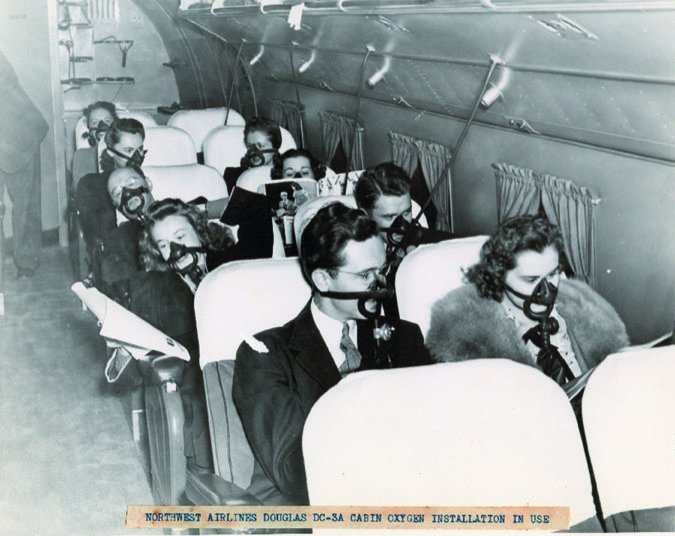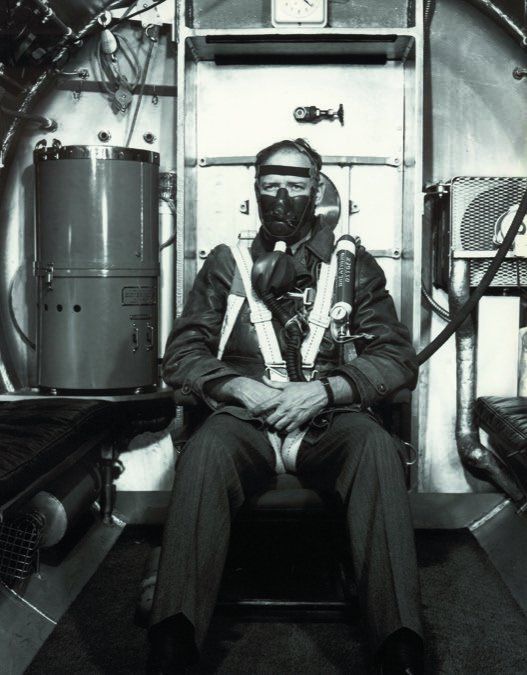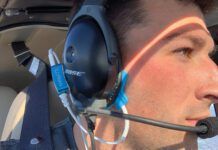The well-respected Mayo Clinic has a rich heritage in aviation that dates back to the 1930s. Today, the Mayo Clinic’s Aerospace Medicine program puts a sharp focus on routine FAA medical certification, but perhaps to a much higher level than you’d find in the office of your local AME.
The Mayo Clinic’s comprehensive set of medical services for both professional and recreational pilots focuses more on preventive medicine-or keeping pilots healthy for continued long-term certification-while also working closely with the FAA so pilots with medical certification issues don’t get snagged in FAA special issuance bureaucracy. Here’s an overview of two programs focused on doing just that.
Many Firsts
The Mayo Clinic has roots deeply planted in aviation dating back to World War II, through its Department of Physiology. This includes extensive research in aerospace medicine, and it can be credited for inventions to include the aviator’s oxygen mask, the G-suit, the oxygen bail-out bottle and the M1 maneuver. Fighter pilots used this maneuver to maintain consciousness when subjected to G-forces.
The original lab and its founders developed the pulse oximeter, plus the Mayo Clinic housed the first hyperbaric high-altitude chamber. More recently, the clinic was used by Boeing for testing the oxygen mask system in the 787 airliner.
The clinic has campuses in Minnesota, Florida and Arizona, but much of the Aerospace Medicine program is at the Minnesota campus.
As for its history with pilot medical certification, the Mayo Clinic has been home to the nation’s first flight examiner, designated by the Civil Aeronautics Board in the 1930s. It says its staff of flight physicians are experts in working with the FAA on behalf of the patient.
Dr. Clayton Cowl, chair of the Preventive, Occupational and Aerospace Medicine division, told us the department sees roughly 1800 patients per year, some with the most complex medical certification cases that you can imagine. According to Cowl, in all but a dozen or so cases spread out over 20 years the clinic was able to return those pilots to the flight line. As for the patients that the clinic couldn’t get certified, they simply shouldn’t be flying anyway, Cowl told us.
Dr. Cowl also reiterated that the Mayo Clinic has been extremely focused on changing the old paradigm of “what the certifying agency doesn’t know won’t hurt them.” Of course, this mentality can seriously jeopardize a pilot’s flying career. “This situation has really come into focus now that we’re in an environment that already has a significant pilot shortage,” he said.
Cowl makes a good point that’s worth remembering, whether you go to the Mayo Clinic or your own AME for certification. As pilots, we almost always focus on the “what ifs” of losing a medical certificate to health problems, but to the clinic, it’s more about the pilot getting the proper, regular screening in the first place. Think in terms of these folks being your health provider, equipped to facilitate modern screening procedures.
Is screening beyond what the FAA requires necessary? We think so, and so does the Mayo Clinic. It’s a common-sense mentality that we all have the opportunity to diagnose colon cancer early, rather than later. The same can be said for prostate cancer and a potential heart attack before it happens and a long list of other stuff that’s part of aging.
“Why are pilots willing to spend thousands of dollars on training and cockpit gadgets, but the most important part of the aircraft-the pilot-often gets short-changed from a medical upkeep standpoint?” Cowl said. His other point is that taking a preventive approach to certification can make the process so much easier, with better, correct documentation that could mean less risk of losing a medical in the first place. If you’ve dealt with it, you know where the problem solving begins-which is often navigating the system on your own.
ProPilot
That’s what the Mayo Clinic calls the preventive medicine path it has in place for maintaining a medical and it really caters to professional pilots, although any pilot might benefit, particularly one who doesn’t need to renew the medical yet, but has been diagnosed with a potentially disqualifying condition. The clinic’s ProPilot program was designed for two things. First, as a means for professional pilots to get regular medical certification with the least amount of trouble, although that’s not without some effort and additional expense because you’ll have to visit a Mayo Clinic campus to get it done. More on that in a minute.
The second thing, and perhaps most important, is if you do show up with a medical certification problem, the clinic says it has an inside working relationship and a direct, open line of communication with the FAA to solve the issue quickly. Worth mentioning is that there is obviously a trust factor that needs to be established between the pilot and Mayo Clinic. As a result, the division performs what it refers to as confidential evaluations, where medical conditions are addressed in a confidential and safe environment, whether a pilot has specific health concerns or even wants a potentially career-ending condition evaluated without getting the FAA involved yet.
Regardless the level of medical certification a pilot intends to achieve, the Mayo Clinic looks at the bigger picture for every applicant who walks in the door. “We want them to have a long and healthy retirement. If they’re flying for pay, we want pilots to retire on their terms. We do everything we can to prevent problems before they occur,” Cowl said. He attests that inflight medical emergencies (for flight crews) are extremely rare, no matter what kind of aircraft you fly. However, the consequences for a professional flight department or even a recreational owner-pilot who has a lot of money invested in an aircraft can be huge. Moreover, Cowl said the trend has been for blue-chip companies with large flight departments to send pilots to the clinic simply for its preventive approach to certification.
More Than A Certificate
It’s clear that airman medical certification at the Mayo Clinic goes beyond the FAA’s requirements and you might expect additional screening you’d likely never get during a routine visit to your local AME. For private pilots (or those not flying for a professional flight department) the process for certification is pretty much the same as it is for the pros, although there is no one size that fits all. Dr. Cowl reinforced, as you’d expect, that the majority of younger pilots under the age of 40 simply don’t require the same clinical focus as those over 50 or 60. But it’s never too early to begin the preventive approach.
When a pilot shows up for a baseline visit, the clinic documents an extensive family health history and the pilot’s medical history, but not, according to Cowl, from a standpoint of finding something that might ground the pilot. Instead it’s used as a basis for directing the preventive tests that are the most applicable to that individual.
As an example, if you are under age 40 and sign up for the ProPilot program there is going to be a set of baseline tests that the Mayo Clinic runs. This includes a chest X-ray, which generally won’t be required every time you show up. The way the clinic looks at it, if say three years down the road you’re on a flying trip and find yourself in an emergency room with a case of pneumonia, it can transmit the on-file report of the baseline chest X-ray for comparing it to the current one.

As another example, if a pilot has a strong family history of coronary disease, the clinic will tailor an appropriate surveillance approach, which might include cardiovascular studies including a stress test on a treadmill, before it becomes a disqualifying issue. It might also include preventive things like taking an aspirin each day, doing a cholesterol profile and treating it if the results raise any flags.
Even if you don’t have a family history of colorectal disease, it’s widely prescribed to get a baseline colonoscopy at 50 years of age. Dr. Cowl reports that the clinic sees a large number of pilots slightly over age 50 with colorectal polyps. They often aren’t cancerous-yet, but they certainly could be full-blown cancerous lesions ten years down the road, for example. Of course, more than one AME told us what we already know and that is you should be getting this routine screening anyway, especially if you are under the care of a competent primary care doc.
On the other hand, we asked Dr. Cowl if, in general, he believes pilots are avoiding routine medical screening in fear of jeopardizing their medical certificate. The answer was yes. “I think there are a lot of pilots who put their head in the sand for fear of the great unknown, as opposed to developing a trusted relationship with an AME willing to take the extra time that’s required to expedite the certification process should it become a deferral or special issuance,” he told us.
An Inside Track
We’ve dealt with deferred certification and while the outcome ended well, can attest that the process can drag along while the pilot does the majority of the work. And that is where the Mayo Clinic says it has the advantage, taking the role of a pilot advocate who has the inside track to the right people at the FAA, while understanding the correct language that’s required when corresponding with the FAA. Dr. Cowl said many (not all) AMEs simply don’t want to spend the extra time that they may or may not be reimbursed for to simply pick up the phone and help expedite a pilot’s certificate for even the most minor deferrable condition.
The ProPilot program is currently administered at the Mayo Clinic’s Rochester, Minnesota, campus, which has six full-time AMEs and a variety of other sub-specialists who are also pilots. We think this under-one-umbrella team approach has advantages because as one unit, all of the testing data and other specifics can be sent to the FAA as one package, rather than the chore of doing it with multiple correspondents.
There are also examiners at the Mayo Clinic’s Jacksonville, Florida, and Scottsdale, Arizona, campuses, but they aren’t part of ProPilot. Of course traveling to Minnesota for the ProPilot program won’t be without sizable effort and expense. For the busy flight department that’s counting on keeping its pilots on the flight line, it’s an expense that may be worth it. For the typical recreational pilot who doesn’t have a medical condition (that they are aware of), perhaps not so much. The costs for ProPilot vary widely depending on testing and how many company pilots are enrolled in the program. Some of the care might be billable through some insurance programs.
Clear Approach
As we go to press, the Mayo Clinic is rolling out the Clear Approach program. The idea behind Clear Approach is to make some of the things the clinic does with ProPilot accessible to recreational pilots faced with potentially disqualifying conditions. For starters, it’s a means of telling your medical story online (electronically) in a confidential manner, and the clinic won’t share this so-called confessional-booth discussion with the FAA. In either real time or within a 24-hour period of describing the problem, you’ll get a response from the Mayo Clinic with an overview of how the FAA is going to deal with the condition, the testing you’ll likely need and should you decide to work with the Mayo Clinic in proceeding with certification, help with setting up an appointment to begin.
“Should the pilot elect to press the big green button, all they need to do is get themselves to the Mayo Clinic and we’ll take care of the flight physical, the testing, the sub-specialty referrals and other things on the back end,” Dr. Cowl said. That initial electronic consultation carries a nominal fee of around $50. Until the volume of pilots in the Clear Approach program becomes adequate enough for the clinic to justify expanding visits to its Florida and Arizona locations, pilots will need to visit the Minnesota campus.
Understanding that Clear Approach is a way for the clinic to channel pilots toward its practice, at the least the clinical portal is a good first step in figuring out a reliable path to certification. We’ll follow up on Clear Approach as it matures, but in the interim you can link to the Mayo Clinic’s programs at www.mayoclinic.org.





